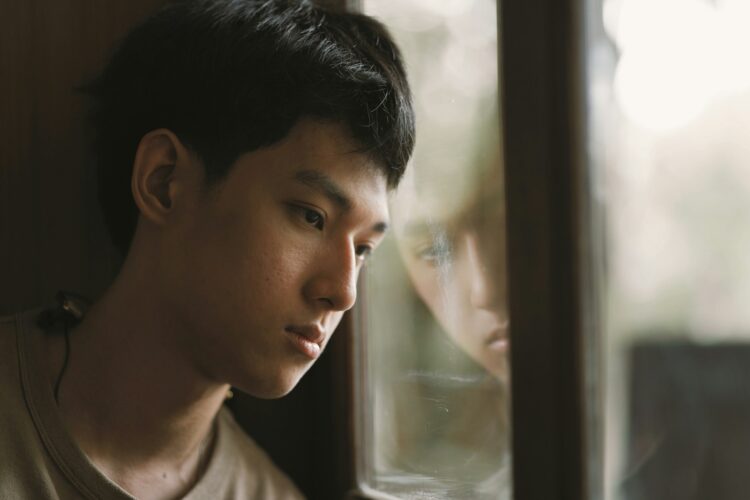
Being left out as a child doesn’t just hurt in the moment, but also shapes the way you see yourself, relate to others, and protect your heart as an adult. The exclusion you experienced early on may have taught you survival strategies that linger today, sometimes helping you stay safe, other times holding you back from real connection. These signs can help you recognize those patterns so you can begin to heal and create relationships where you truly belong.
You expect to be excluded before it even happens.

You walk into a room already looking for signs you’re not wanted. It’s not that you enjoy being negative — it’s a learned defense. Years of being left out have trained your mind to anticipate disappointment before it arrives. You might hang back, observe, or keep your expectations low, telling yourself it’s “just being realistic,” when deep down it’s about avoiding the sting of surprise rejection.
Group settings make you feel tense.

Even when you know the people, group situations put you on alert. You’re listening to the tone of conversations, watching who interacts with whom, and bracing for the moment you might get left out. While others can relax and simply enjoy themselves, you’re quietly monitoring the social temperature — a habit rooted in the times you were invisible in a crowd as a child.
You overthink small social moments.

When a friend forgets to text you back or doesn’t include you in a casual invite, your mind doesn’t see it as a one-off. It starts building a case. You might replay old situations, compare them to now, and wonder if you’re being slowly pushed out. This hyper-awareness comes from the pattern of exclusion you knew as a kid, where small hints often signaled bigger things.
You downplay your needs to avoid rejection.

You’ve learned that asking for too much can feel like handing people an excuse to leave you out. So you stay “easy” — never demanding, rarely complaining, quick to adapt. The trade-off is that people might see you as low-maintenance but never realize you have deeper needs and feelings. It’s a defense that kept you included just enough to survive childhood, but now it keeps you underseen.
Compliments sometimes make you suspicious.

Praise doesn’t always land as warmth — sometimes it lands as confusion. You might wonder if the person is just being polite or if they’re trying to smooth over something else. That comes from learning that nice words didn’t always match people’s actions. As a child, someone could smile at you one day and ignore you the next, so now you treat compliments like they need verification.
You find it hard to believe you truly belong.

Even in a loving relationship or a tight-knit friend group, a part of you feels like you’re still “on trial.” You might constantly prove your worth, fearing that any slip-up will push you out. This belief isn’t because you doubt others entirely — it’s because you grew up in an environment where belonging felt conditional, granted only until someone else decided otherwise.
You sometimes pull away before others can.

Instead of waiting to be left out, you decide to leave first. It feels like taking control over the inevitable. You might cancel plans last-minute, withdraw from group chats, or emotionally detach before anyone notices. The relief of leaving on your own terms can be strong, but it also means you miss chances to see that not everyone is looking for a reason to exclude you.
Invitations surprise you more than they should.

When someone includes you without hesitation, you feel a rush of warmth — quickly followed by disbelief. You might check if they invited everyone else or if it’s just you, as though inclusion is something rare and fragile. That reaction comes from years of not expecting to be thought of, so when you are, it feels like a gift you weren’t prepared to receive.
You struggle to speak up in group conversations.

Your instinct is to wait for the perfect opening to speak, which sometimes never comes. This comes from early lessons that speaking up didn’t stop you from being left out, or that your words could easily be dismissed. So now, even when you have something valuable to say, you might hold it in, afraid it will be ignored and confirm an old fear: that your voice doesn’t matter.
You notice every sign of favoritism.

Your radar for inclusion and exclusion is sharp. You notice who gets praised more, who’s remembered in group plans, and who’s always paired together. This sensitivity can make you deeply empathetic, but it can also pull you into overanalyzing harmless situations. That vigilance is an old skill — one you used to read the social map as a child so you could avoid being hurt.
You feel relieved when plans are canceled.

While others may feel disappointed, you sometimes feel a wave of calm. Canceled plans mean no need to navigate possible awkwardness, no risk of sitting alone or being overlooked. It’s not that you don’t want to connect. It’s that part of you relaxes when the possibility of exclusion is removed from the equation entirely.
You avoid sharing too much about yourself.

Openness can feel like exposure. As a child, giving away personal details may have been followed by teasing, rejection, or gossip. Now you test the waters carefully, revealing only small pieces at a time. You’re still learning that vulnerability can lead to closeness and trust, rather than repeating the exclusion you once knew so well.
Praise feels temporary to you.

When someone appreciates you, it’s a nice moment, but you rarely let it sink in fully. In the back of your mind, you expect it to fade — because that’s what happened before. Maybe as a kid, someone was friendly to you for a while, then suddenly stopped. Now, praise can feel like a brief sunbeam you enjoy but never trust to last.
You downplay your accomplishments to avoid envy.

You might hold back on sharing good news because you worry it will change how others see you. As a child, standing out in a positive way could have backfired — it might have led to jealousy or even more exclusion. So you learned to keep victories small and quiet, as if celebrating too much would invite rejection.
You still carry the question, “What’s wrong with me?”

Even with years of growth and achievement, a part of you might still wonder why you were left out. That question lingers not because you’re weak, but because exclusion in childhood can feel personal, even when it wasn’t about you. Unless it’s addressed, it becomes a quiet background thought, shaping how you approach every relationship — and making belonging feel like something you have to earn.

